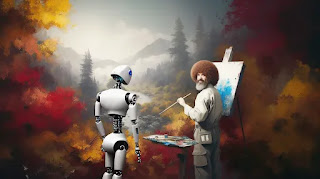As society enters the postmodern era, it is gradually becoming easier to overlook just how intertwined technology is to our everyday lives. Simple tasks such as grocery shopping, writing a letter, or hailing a taxi have all been simplified in a way where they can be completed with a click of a button. Our ancestors’ Jetson dreams have been conceived in everything from our Roombas to our smart-fridges to our voice activated assistants. Any convenience we could imagine can be ours with the right gadget for the right price. But as technology progresses, seemingly making our lives simpler, our dependence on these devices grows.
The cartoon The Jetsons painted an idealistic vision of the future and the conveniences of its technological advances
However, technology is not the one-way street it used to be. As society advances technologically, we are no longer just using technology- technology is using us. As we surf the web searching for shoes, pet sitters, and job openings, gigantic corporations eagerly watch our every move, hoping to anticipate our next with the data they’ve gathered. Through our searches, clicks, and downloads, our interests become apparent and our ads become targeted. This relationship with technology blurs the lines between commensalism and codependency, bringing into question whether technology is truly for our benefit or thrives off of our reliance.
| Collage artwork by artist Maya Land (@artisticsideoflife_ on Instagram) inspired by George Orwell's novel 1984 |
When most people think of the term “online footprint,” they think of incriminating social media posts with slurs and underage drinking, not a Google search for curry recipes. However, our online footprint spreads much farther than our Instagram profiles. When I googled my name and my hometown, I found multiple articles mentioning me, ranging from my time in middle school to when I graduated from community college last spring. Even if I deleted all of my social media profiles, the articles put out by the school I have attended are incredibly public and outside of my control.
Three out of the four search results featured in the image were about me, and all of them were published without my knowledge
Despite most of my internet footprint consisting of articles praising the academic achievements of me and my peers, it is chilling to think of what other things could be out there without my awareness. Others could easily spread convincing lies about me without my knowledge, ruining my reputation before I had any idea. On the contrary, someone might also find true information about me that could ruin my public image. This once happened to a boy who tried to date me, who told me that he was 5’11” in height. The wrestling recruitment profile I found via a quick Google search said otherwise.
Even the things we think are for our advancement can be twisted and used against us, so we must use the internet with the utmost caution. Before posting anything, it is important to ask ourselves if we would still post such photos and opinions if we knew we could never delete them. In a way, our internet footprint is more like a tattoo-, something that can fade over time, but that will never truly go away. With enough persistence, anything on the internet can be traced back to its origins, so we must be vigilant in protecting our image online.























